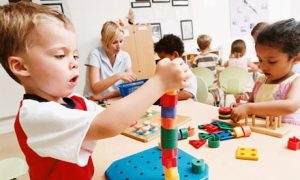The following are some research findings about children making friends:
Saying ‘Hi’
Just saying ‘Hi’ or any other greeting is a great way to make friends. A child who makes eye contact, smiles and says the name of another child makes the greeting more personal. Shy children often find it difficult and awkward to say ‘Hi’ and tend to look away, not saying anything.
Showing Kindness
Children who show kindness are well-liked by other children. For example, a child who shares his crayons or toy is a best way to begin a friendship. However, some children may ‘buy friends’ by giving money or something valuable thinking that they are being kind. Sometimes a child may take what is offered but yet not want to make friends with the child.
Similarity
Generally, children tend to make friends with children who enjoy the same activities they do because they feel more comfortable. For example, a child could be asked what is it they have in common with another child. However, it does not mean that the child should be a ‘clone’ of another child or that a child cannot make friends with someone who has different interests or from a different background. What is more important is knowing that friendship begins with making’connection‘ (Kennedy-More, 2011).
Having Fun
When a child “hits it off” with another child, it is likely they will be friends. It is having fun with another child and the bond is sustained during play. In other words, to have fun with another child, a child has to behave in ways that the other child enjoys, able to communicate likes and dislikes, and avoid or resolve any disagreements. However, things will go wrong if the ignores, walks away, refuses to share, snatches toys away from the other child, bossing the other child around, yelling at or hitting the other child. All the above actions interfere with shared fun (Gottman & Graziano, 1983).
Model Positive Behaviour
Adults should be aware that children learn by observing how adults interact with others. For example, how adults adults strike up conversations with friends or neighbours, or how they talk to the salesperson at the shops or supermarket is closely observed by children. The child is watching how adults talk, behave and solve problems with other adults and it becomes a learning opportunity.
Adults Should Be Realistic
Adults should be sensitive about children’s unique personality and temperament and their struggle with making friends. Just because an adult has lots of friends, it does not mean that the child will also have lots of friends. Some children make a few really good friends and they are happy. It is tough for adults to accept that a child does not meet up up to their standards. As long as children are doing things they want to do and are happy and well adjusted, that is good enough.






